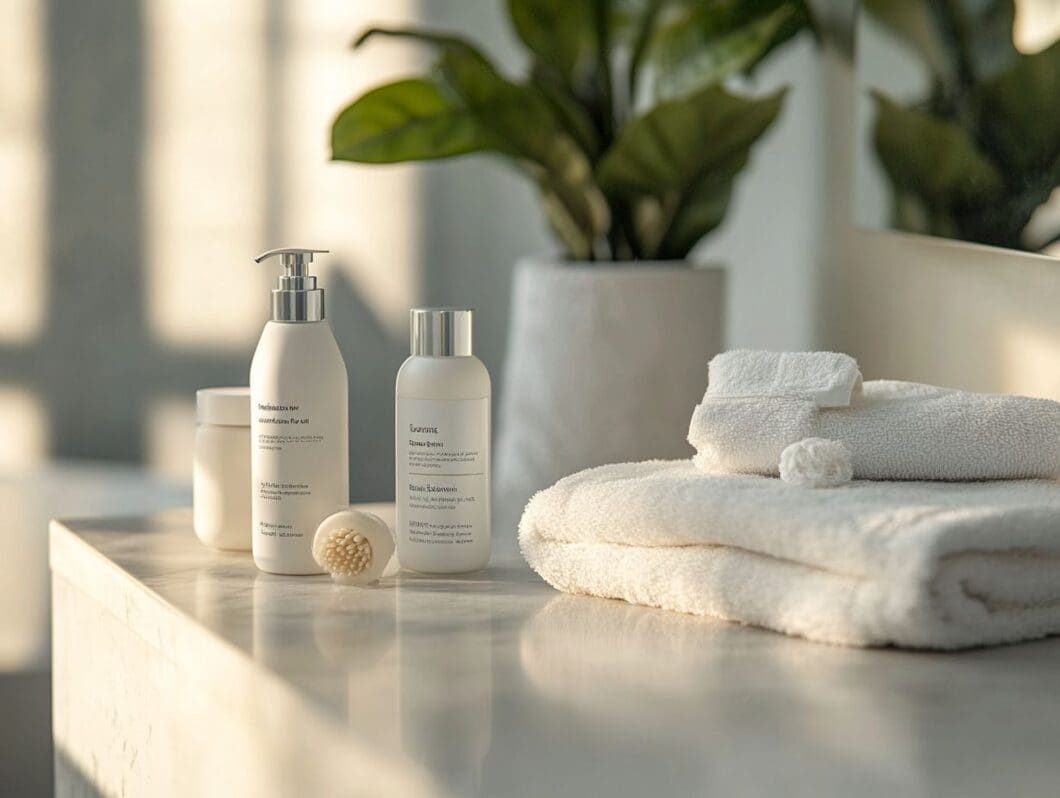Pregnancy brings a whirlwind of changes, and your skin is no exception. From hormonal fluctuations to increased sensitivity, understanding how to care for your skin during this special time is essential.
This guide will cover the shifts your skin may experience, highlight safe skincare products and ingredients, and provide a step-by-step routine tailored for expectant mothers.
Additionally, we will address special considerations like hormonal acne, sun protection, and stretch mark prevention.
Get ready to embrace your glowing skin while ensuring it’s safe and healthy for you and your baby!
Key Takeaways:
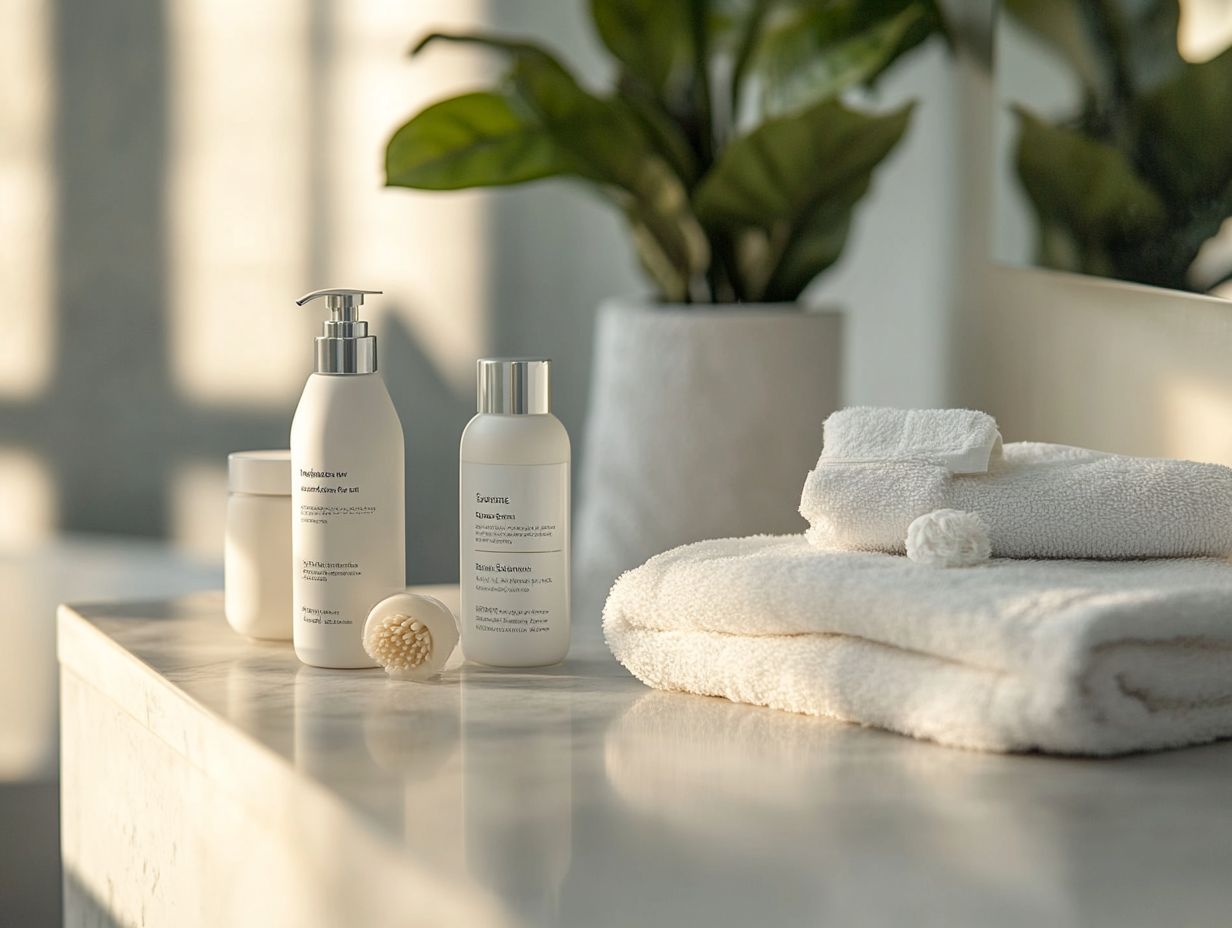
Understanding Skincare During Pregnancy
Understanding skincare during pregnancy is essential for expectant mothers, as their bodies experience significant changes due to fluctuating hormones, which can affect skin health. Establishing a skincare routine that prioritizes safe practices is crucial, ensuring the use of pregnancy-safe products that do not compromise the health of both the mother and the developing baby.
Consulting with dermatologists for personalized recommendations can facilitate navigating this sensitive phase, making it easier to select appropriate skincare options tailored to the unique needs of pregnant individuals.
Changes in Skin During Pregnancy
During pregnancy, many women undergo significant skin changes, primarily attributable to the increase in pregnancy hormones. This hormonal surge can lead to conditions such as melasma and acne.
These hormonal fluctuations may result in heightened pigmentation, often manifesting as dark patches on the face, which can create an uneven skin tone. Additionally, the increase in hormones can exacerbate acne flare-ups, with some individuals noticing that their skin becomes oilier than usual. Increased sensitivity is also a common occurrence, causing the skin to react more to products that were previously tolerated without issue.
To effectively manage these changes, it is crucial to maintain a consistent skincare routine, select gentle products, and seek advice from a dermatologist for personalized recommendations that address the evolving needs of the skin.
Safe Skincare Products During Pregnancy
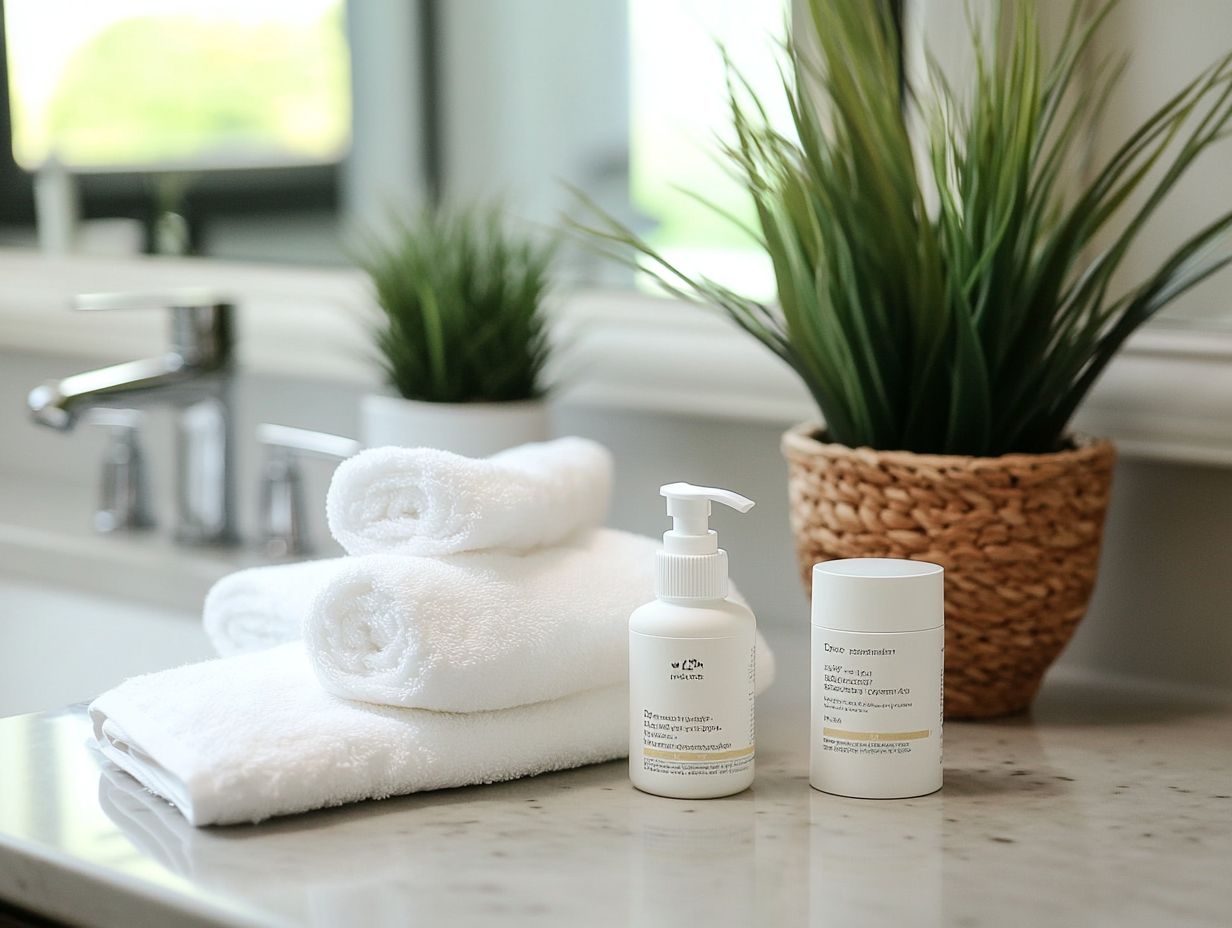
Selecting safe skincare products during pregnancy is crucial for the well-being of both the mother and the baby. This process entails a comprehensive understanding of which ingredients are deemed pregnancy-safe and are recommended by dermatologists.
Common Ingredients to Avoid
Certain skincare ingredients should be avoided during pregnancy due to potential risks to both the mother and the developing fetus. These include retinoids, salicylic acid, hydroquinone, and endocrine-disrupting chemicals.
These substances can pose various health threats, such as hormonal imbalances and developmental issues in the fetus. For instance, retinoids, commonly found in anti-aging products, may lead to serious birth defects when absorbed into the bloodstream. Salicylic acid, while effective for treating acne, has been associated with an increased risk of miscarriage when used in high concentrations. Hydroquinone, a skin-lightening agent, may compromise the skin barrier or negatively impact fetal development due to systemic absorption.
Pregnant individuals are advised to consider safer alternatives, such as azelaic acid for acne treatment, vitamin C for skin brightening, and gentle exfoliants derived from natural sources. This approach ensures both efficacy and safety during this critical period.
Recommended Products and Ingredients
For expectant mothers, it is crucial to utilize recommended pregnancy-safe products, including physical sunscreens and specific topical retinoids that are deemed safe for skincare routines.
To maintain skin health and address common concerns during pregnancy, dermatologists recommend incorporating products that are free from harmful chemicals.
In the category of sunscreens, those containing zinc oxide or titanium dioxide are preferred due to their mineral-based formulation, which provides effective UVA and UVB protection without being absorbed into the skin. Notable options include:
- EltaMD UV Clear
- Neutrogena Sheer Zinc
When considering moisturizers, products enriched with hyaluronic acid or shea butter should be sought after, as they offer hydration without causing irritation. Brands such as:
- Aveeno
- Cetaphil
provide excellent choices. In terms of retinoid alternatives, products containing bakuchiol are increasingly recognized for their safe anti-aging properties, making them suitable for pregnant women.
Creating a Pregnancy-Safe Skincare Routine
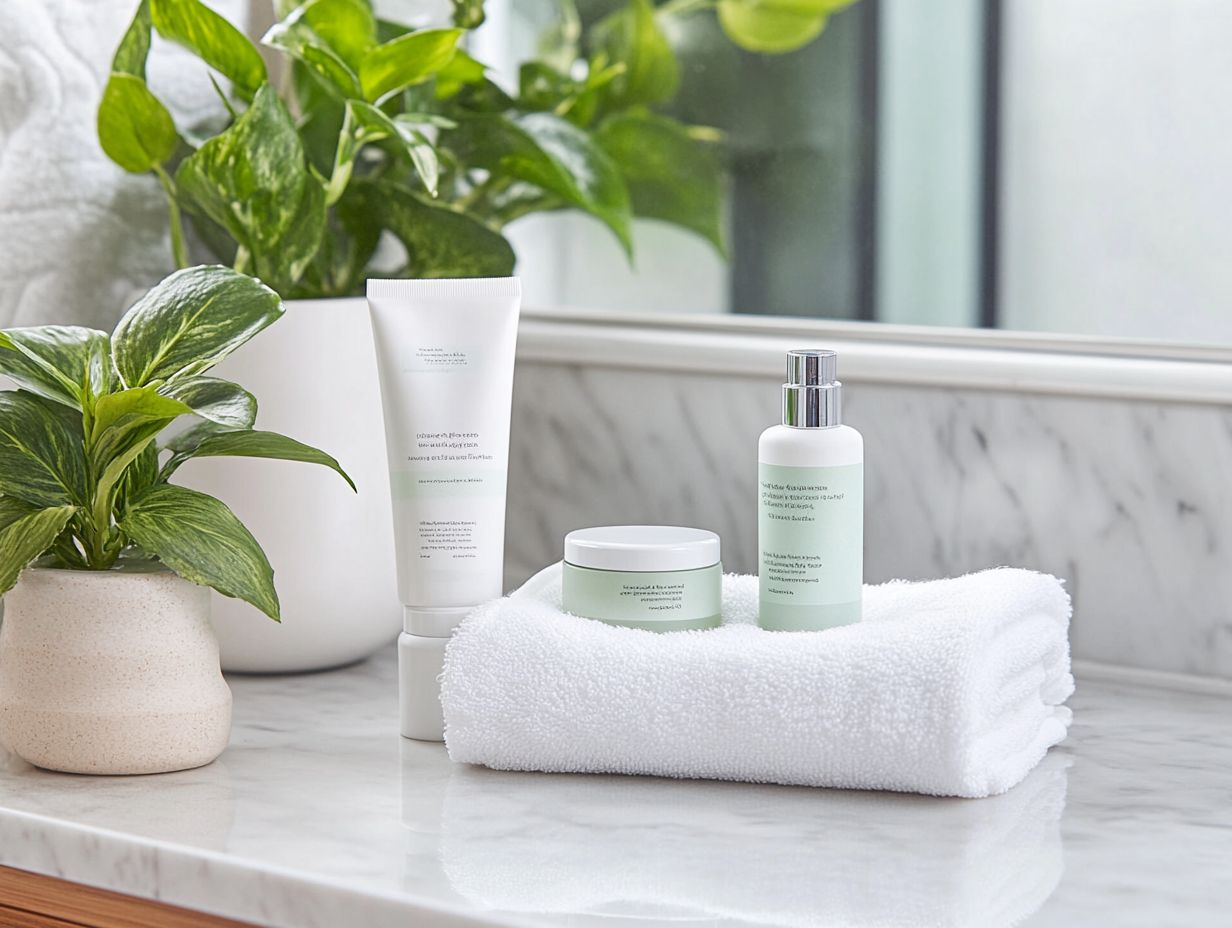
Establishing a pregnancy-safe skincare routine necessitates the careful selection of products that not only target specific skin concerns but also comply with safety guidelines endorsed by dermatologists.
Step-by-Step Guide
A comprehensive guide to establishing a pregnancy-safe skincare routine can assist expectant mothers in managing their changing skin by incorporating safe products and effective facial treatments.
Hormonal fluctuations commonly result in increased sensitivity, dryness, or breakouts; therefore, it is imperative for mothers-to-be to adopt a skincare regimen that addresses these concerns while prioritizing safety. This guide will outline the optimal steps to develop a morning and evening routine that promotes skin health while avoiding harmful ingredients.
From gentle cleansers that effectively remove impurities without compromising the skin’s natural moisture barrier to nourishing moisturizers and sunscreens that provide protection against UV rays, each step is crucial. Additionally, we will examine facial treatments that can safely rejuvenate the complexion, ensuring that every product selected is both effective and devoid of hazardous chemicals.
By embracing these practices, expectant parents can feel enableed and confident during this transformative period.
Special Considerations for Pregnancy Skincare
Special considerations for skincare during pregnancy involve addressing specific concerns, including hormonal acne, the importance of sun protection, and effective strategies for the prevention and treatment of stretch marks.
Dealing with Hormonal Acne
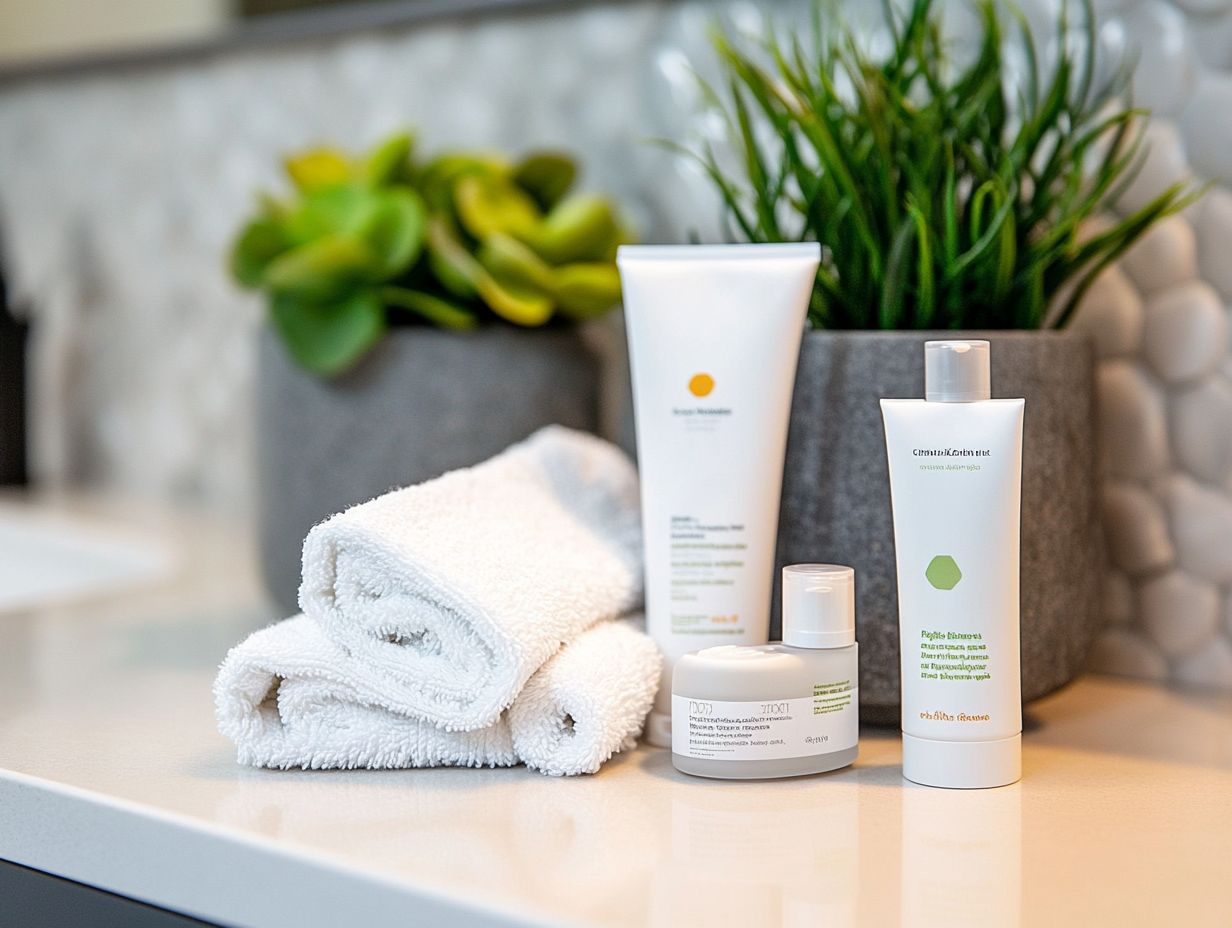
Managing hormonal acne during pregnancy can be a complex issue; however, there are safe skincare routines and products available that can effectively address breakouts.
Expecting mothers frequently experience changes in their skin due to hormonal fluctuations, which can lead to unexpected breakouts that may be discouraging. To mitigate these concerns, incorporating gentle, non-comedogenic cleansers into a daily skincare regimen can be highly beneficial. It is advisable to choose products containing ingredients such as azelaic acid or niacinamide, as these are typically considered safe during pregnancy.
Dermatologists commonly highlight the significance of maintaining hydration and sun protection. Utilizing a lightweight, oil-free moisturizer in conjunction with a broad-spectrum SPF can offer a well-rounded approach to skincare. Furthermore, consulting a dermatologist for personalized recommendations tailored to specific skin types and concerns is strongly recommended.
Sun Protection and Pregnancy
Sun protection during pregnancy is essential to safeguard the skin from harmful UV rays. Dermatologists frequently recommend the use of physical sunscreens that contain zinc oxide or titanium dioxide.
These mineral-based options are preferred for their capacity to create a protective barrier on the skin, reflecting sunlight rather than absorbing it. In contrast, chemical sunscreens employ organic compounds to absorb UV rays, which may raise concerns regarding potential skin sensitivity or hormone disruption during this sensitive period.
Pregnant individuals are advised to select a sunscreen with an SPF of 30 or higher for optimal protection and to reapply it every two hours, particularly when spending time outdoors. Additionally, seeking shade, wearing protective clothing, and utilizing wide-brimmed hats can further enhance sun safety, ensuring that both the mother and baby remain healthy and protected from the sun’s harmful effects.
Stretch Mark Prevention and Treatment
Stretch mark prevention and treatment during pregnancy can be effectively managed through a comprehensive skincare routine and the use of pregnancy-safe products specifically formulated for this purpose.
Incorporating a combination of high-quality moisturizers and nourishing oils can significantly enhance skin elasticity and hydration, thereby reducing the likelihood of stretch marks. Maintaining adequate hydration by consuming sufficient water daily is also crucial, as it contributes to skin suppleness.
It is advisable to seek products that contain ingredients such as cocoa butter, shea butter, and vitamin E, which are well-regarded for their nourishing and protective properties.
Additionally, employing gentle massage techniques while applying these products can further improve circulation, promoting healthier skin during this transformative period.


